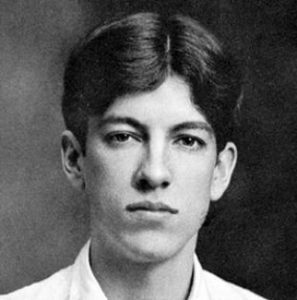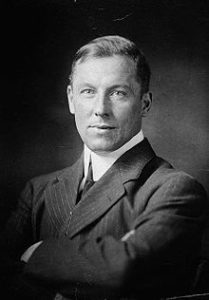Two Poems About War… and Death
Ah! Here’s something!
A response to the November 13 issue, where I talked about how much I liked Alan Ginsberg’s poem Howl, and how it had a powerful effect on me when I first read it in my late teens.
The email is from AS, a fellow writer:
I’m embarrassed to say I’ve never read Ginsberg. But from the small sample in your blog today, I think one would need to take Prozac prior to reading his works. In my darkest days, the things I wrote would be seen as comedy compared to him.
Hmm. I know AS. In his lightest days, his view of the world is 10 shades darker than Howl.
I read Howl as a poem of celebration – even exaltation.
I don’t mean to sound like a total ass here, but this is what is so great about art. The same expression – whether it’s a film or a painting or a poem – can elicit such different responses.
What better way to spur a real conversation? I love it when this happens!
At the end of his email, AS then “recommends” two poems that he says I “would never read”:
* On the Wire by Robert Service
* I Have a Rendezvous With Death by Alan Seeger
In fact, I’ve already read or heard them read at least a dozen times. They were written long before I was born, but were very popular in the 1950s and throughout the Vietnam War years.
They share some similarities:
* They were both written during WWI.
* They are both about death – the death of the speaker.
* They both became part of the common culture, at the level of Rudyard Kipling’s If…
But one is much better than the other. And, no, it’s not a matter of opinion. I have it straight from… well, let’s just say, “I’m right.”
So that’s what today’s assignment will be. Read these two poems and let me know what you think.
I Have a Rendezvous With Death
By Alan Seeger
I have a rendezvous with Death
At some disputed barricade,
When Spring comes back with rustling shade
And apple-blossoms fill the air –
I have a rendezvous with Death
When Spring brings back blue days and fair.
It may be he shall take my hand
And lead me into his dark land
And close my eyes and quench my breath –
It may be I shall pass him still.
I have a rendezvous with Death
On some scarred slope of battered hill,
When Spring comes round again this year
And the first meadow-flowers appear.
God knows ’twere better to be deep
Pillowed in silk and scented down,
Where love throbs out in blissful sleep,
Pulse nigh to pulse, and breath to breath,
Where hushed awakenings are dear…
But I’ve a rendezvous with Death
At midnight in some flaming town,
When Spring trips north again this year,
And I to my pledged word am true,
I shall not fail that rendezvous.

Alan Seeger
Alan Seeger was born in New York City in 1888 and died in 1916. He was killed in action in World War I during the Battle of the Somme, while serving in the French Foreign Legion. A statue representing him is on the monument in Paris that honors fallen Americans who volunteered for France during the war. Poems, a collection of his works, was published posthumously by Charles Scribner’s Sons.
On the Wire
By Robert William Service
O God, take the sun from the sky!
It’s burning me, scorching me up.
God, can’t You hear my cry?
Water! A poor, little cup!
It’s laughing, the cursed sun!
See how it swells and swells
Fierce as a hundred hells!
God, will it never have done?
It’s searing the flesh on my bones;
It’s beating with hammers red
My eyeballs into my head;
It’s parching my very moans.
See! It’s the size of the sky,
And the sky is a torrent of fire,
Foaming on me as I lie
Here on the wire… the wire….
Of the thousands that wheeze and hum
Heedlessly over my head,
Why can’t a bullet come,
Pierce to my brain instead,
Blacken forever my brain,
Finish forever my pain?
Here in the hellish glare
Why must I suffer so?
Is it God doesn’t care?
Is it God doesn’t know?
Oh, to be killed outright,
Clean in the clash of the fight!
That is a golden death,
That is a boon; but this…
Drawing an anguished breath
Under a hot abyss,
Under a stooping sky
Of seething, sulphurous fire,
Scorching me up as I lie
Here on the wire… the wire….
Hasten, O God, Thy night!
Hide from my eyes the sight
Of the body I stare and see
Shattered so hideously.
I can’t believe that it’s mine.
My body was white and sweet,
Flawless and fair and fine,
Shapely from head to feet;
Oh no, I can never be
The thing of horror I see
Under the rifle fire,
Trussed on the wire… the wire….
Of night and of death I dream;
Night that will bring me peace,
Coolness and starry gleam,
Stillness and death’s release:
Ages and ages have passed,
Lo! it is night at last.
Night! but the guns roar out.
Night! but the hosts attack.
Red and yellow and black
Geysers of doom upspout.
Silver and green and red
Star-shells hover and spread.
Yonder off to the right
Fiercely kindles the fight;
Roaring near and more near,
Thundering now in my ear;
Close to me, close… Oh, hark!
Someone moans in the dark.
I hear, but I cannot see,
I hear as the rest retire,
Someone is caught like me,
Caught on the wire… the wire….
Again the shuddering dawn,
Weird and wicked and wan;
Again, and I’ve not yet gone.
The man whom I heard is dead.
Now I can understand:
A bullet hole in his head,
A pistol gripped in his hand.
Well, he knew what to do, –
Yes, and now I know too….
Hark the resentful guns!
Oh , how thankful am I
To think my beloved ones
Will never know how I die!
I’ve suffered more than my share;
I’m shattered beyond repair;
I’ve fought like a man the fight,
And now I demand the right
(God! how his fingers cling!)
To do without shame this thing.
Good! there’s a bullet still;
Now I’m ready to fire;
Blame me, God, if You will,
Here on the wire… the wire….

Robert William Service
Robert Service, a British-Canadian of Scottish descent, was 40 when World War I broke out. He attempted to enlist, but was turned down. He briefly covered the war for the Toronto Star. He then worked as a stretcher bearer and ambulance driver with the American Red Cross “until his health broke.” Convalescing in Paris, he wrote a new book of mainly war poetry, Rhymes of a Red Cross Man. The book was dedicated to the memory of his brother, who had been killed in action in France. Service received three medals for his war service: the 1914–15 Star, the British War Medal, and the Victory Medal.
 MarkFord
MarkFord